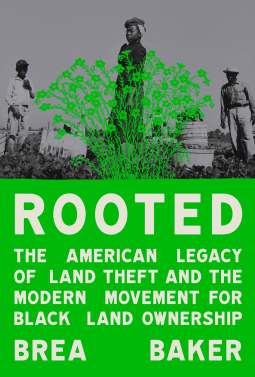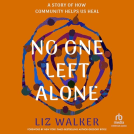
Rooted
The American Legacy of Land Theft and the Modern Movement for Black Land Ownership
by Brea Baker
This title was previously available on NetGalley and is now archived.
Send NetGalley books directly to your Kindle or Kindle app
1
To read on a Kindle or Kindle app, please add kindle@netgalley.com as an approved email address to receive files in your Amazon account. Click here for step-by-step instructions.
2
Also find your Kindle email address within your Amazon account, and enter it here.
Pub Date Jun 18 2024 | Archive Date Aug 17 2024
Talking about this book? Use #Rooted #NetGalley. More hashtag tips!
Description
“With heartfelt prose and unyielding honesty, Baker explores the depths of her roots and invites readers to reflect on our own.”—Donovan X. Ramsey, author of the National Book Award for Nonfiction semi-finalist When Crack Was King
To understand the contemporary racial wealth gap, we must first unpack the historic attacks on Indigenous and Black land ownership. From the moment that colonizers set foot on Virginian soil, a centuries-long war was waged, resulting in an existential dilemma: Who owns what on stolen land? Who owns what with stolen labor? To answer these questions, we must confront one of this nation’s first sins: stealing, hoarding, and commodifying the land.
Research suggests that between 1910 and 1997, Black Americans lost about 90% of their farmland. Land theft widened the racial wealth gap, privatized natural resources, and created a permanent barrier to access that should be a birthright for Black and Indigenous communities. Rooted traces the experiences of Brea Baker’s family history of devastating land loss in Kentucky and North Carolina, identifying such violence as the root of persistent inequality in this country. Ultimately, her grandparents’ commitment to Black land ownership resulted in the Bakers Acres—a haven for the family where they are sustained by the land, surrounded by love, and wholly free.
A testament to the Black farmers who dreamed of feeding, housing, and tending to their communities, Rooted bears witness to their commitment to freedom and reciprocal care for the land. By returning equity to a dispossessed people, we can heal both the land and our nation’s soul.
Available Editions
| EDITION | Other Format |
| ISBN | 9780593447376 |
| PRICE | $30.00 (USD) |
| PAGES | 336 |
Available on NetGalley
Featured Reviews
ROOTED: THE AMERICAN LEGACY OF LAND THEFT IN THE MODERN MOVEMENT FOR BLACK OWNERSHIP by Brea Baker made a convert out of me. Not that I was a doubter, but I had no idea of how pervasive and pernicious the current system of white normativity (my word, not Baker’s) and capitalism has been for generations. Entities that I had assumed helped Black farmers, such as the USDA, have been part of the problem, as the author so exhaustively explains. She skillfully weaves together her own personal story, the historical chronology, along with interviews, personal oral accounts, sociological research, literature. She assembles a lot of material, in service to her thesis, that “where land and its resources are commodities, the exclusion and expulsion of Black and Indigenous people from the land economy has been an act of financial warfare.” She tells stories of loss and pain, also stories of success and resilience, and even more importantly, stories of the way forward. Not fast enough, but better than continuing compounding loss. And so much more. This was a difficult book for me to read. I had to take breaks before continuing a couple times, but I understand the case for reparations in a way I had not previously.
With thanks to NetGalley and One World Publishers for an ARC of this book in exchange for an honest review.
Readers who liked this book also liked:
Kelley Armstrong
Historical Fiction, Mystery & Thrillers, Sci Fi & Fantasy


















